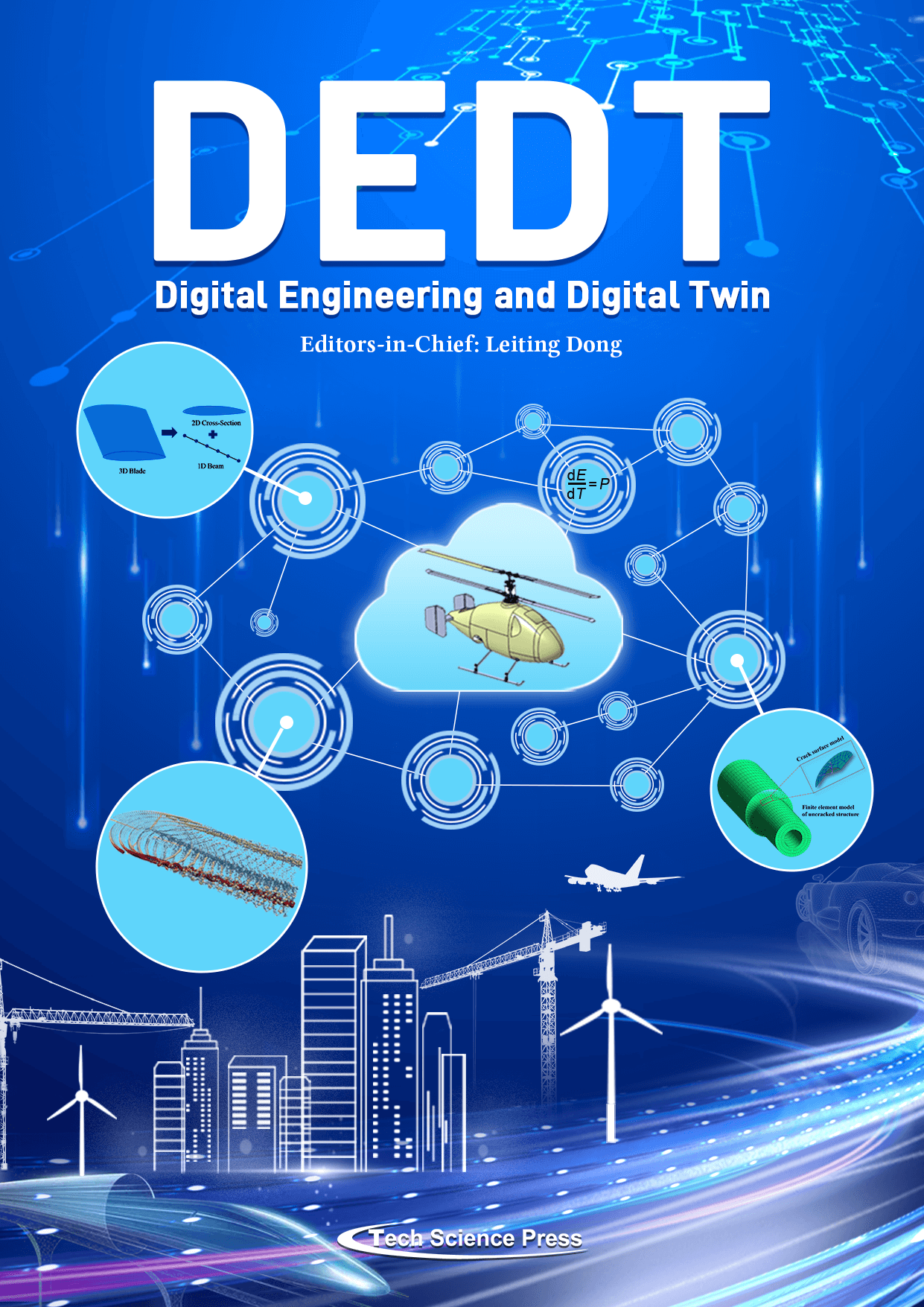
The Digital Engineering and Digital Twin (DEDT) is an international peer-reviewed Open Access journal that covers a broad range of topics in the frontier of digital engineering and digital twin to be of interest and use to both academics and practitioners. The journal communicates original contributions primarily in the form of research articles, but also through letters, technical notes, review articles, and editorials. The multidisciplinary nature of the journal is intended to encourage a fruitful exchange of ideas and research outcomes among different engineering specialties.
The journal’s scope spans methods, technologies, and applications of digital engineering and digital twin in different stages of the product’s lifecycle, including design, development, verification, manufacture, acquisition, operation, and maintenance, in a variety of engineering fields such as aerospace, automotive, marine, civil, mechanical, electrical, etc. Integrations and interactions of multi-stage and multi-disciplinary activities, including but not limited to multidisciplinary design analysis and optimization, model-based system engineering, virtual testing, rapid prototype, digital manufacture and assembly, self-awareness and self-control, prognostics and health management, are encouraged. Relevant methods for DEDT, such as physics-based modeling, data-driven modeling, model reduction, model calibration and updating, model adaptation, verification and validation, multi-domain modeling, multi-fidelity modeling, multi-disciplinary simulation, multi-level and multi-scale simulation, model/data fusion, uncertainty quantification, diagnosis and prognosis, risk-based decision-making, and predictive control, are welcomed. Key enabling technologies for DEDT including software development, platform deployment, connection and communication, visualization, as well as other relevant technologies such as the Internet of Things, cloud/edge computing, big data, artificial intelligence, and VR/AR, are also considered.
 Open Access
Open Access
ARTICLE
Digital Engineering and Digital Twin, Vol.3, pp. 17-34, 2025, DOI:10.32604/dedt.2025.066344 - 19 August 2025
Abstract Image fusion is a technique used to combine essential information from two or more source images into a single, more informative output image. The resulting fused image contains more meaningful details than any individual source image. This study focuses on multi-focus image fusion, a crucial area in image processing. Due to the limited depth of field of optical lenses, it is often challenging to capture an image where all areas are in focus simultaneously. As a result, multi-focus image fusion plays a key role in integrating and extracting the necessary details from different focal regions.… More >
 Open Access
Open Access
ARTICLE
Digital Engineering and Digital Twin, Vol.3, pp. 1-16, 2025, DOI:10.32604/dedt.2025.058943 - 28 February 2025
Abstract Brain tumors are one of the deadliest cancers, partly because they’re often difficult to detect early or with precision. Standard Magnetic Resonance Imaging (MRI) imaging, though essential, has limitations, it can miss subtle or early-stage tumors, which delays diagnosis and affects patient outcomes. This study aims to tackle these challenges by exploring how machine learning (ML) can improve the accuracy of brain tumor identification from MRI scans. Motivated by the potential for artificial intillegence (AI) to boost diagnostic accuracy where traditional methods fall short, we tested several ML models, with a focus on the K-Nearest More >